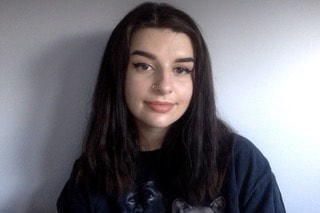Shauna Ruby Valchuk:
|
|
In this video, Shauna Valchuk reads from her Honours Thesis in Creative Writing at Western University. The project is titled No More Magic.
|
How Many Students Have to Die for Us to be Heard?
|
|
Shauna Ruby Valchuk studies at Western University. She graduates in 2020 with an Honour Specialization in Creative Writing, English, Language, and Literature with a minor in Cultural Studies and Popular Culture. She primarily focuses on creative non-fiction and essay writing. In the future, she hope to be comfortable, whatever she ends up
|

